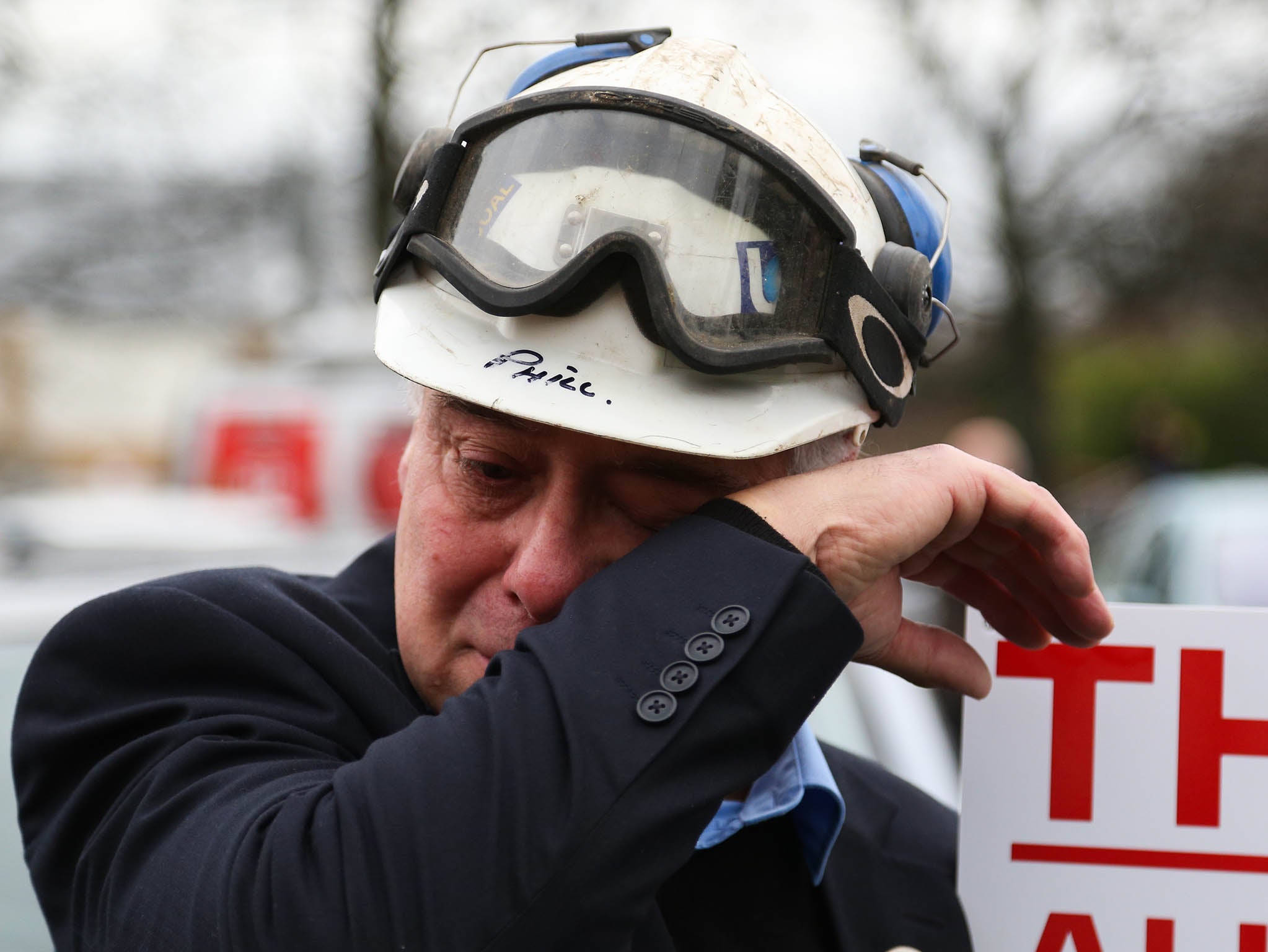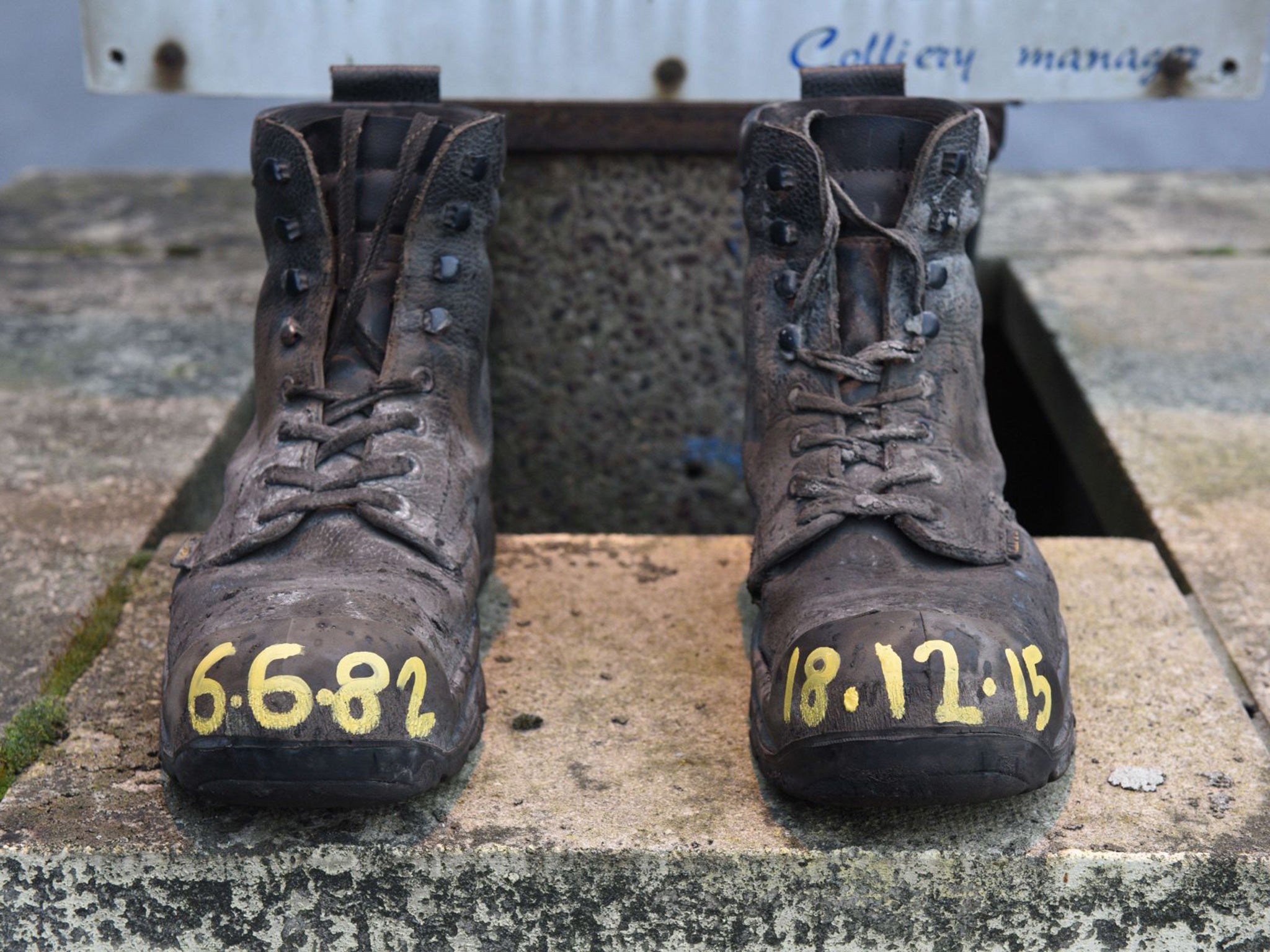Kellingley Colliery: Miners march in final farewell to last British deep coal mine
Miners wiped tears away as the march reaches the end destination

Your support helps us to tell the story
From reproductive rights to climate change to Big Tech, The Independent is on the ground when the story is developing. Whether it's investigating the financials of Elon Musk's pro-Trump PAC or producing our latest documentary, 'The A Word', which shines a light on the American women fighting for reproductive rights, we know how important it is to parse out the facts from the messaging.
At such a critical moment in US history, we need reporters on the ground. Your donation allows us to keep sending journalists to speak to both sides of the story.
The Independent is trusted by Americans across the entire political spectrum. And unlike many other quality news outlets, we choose not to lock Americans out of our reporting and analysis with paywalls. We believe quality journalism should be available to everyone, paid for by those who can afford it.
Your support makes all the difference.More than three thousand people united in a march to mark the closure of Kellingley Colliery’s mine in North Yorkshire and the end of British deep coal mining.
Families, children and miners from around the country joined the march - which folllowed the mine's final working day on Friday - from Knottingley Town Hall in West Yorkshire to the Kellingley Miners Welfare social club.
People lined the streets in support, cheering and applauding as the miners walked the mile-long route.
The march had been organised by two wives of the pit’s workers, Lisa Cheney and Kirsten Sinclair, who felt the day needed to be marked in some way.

Ms Cheney said: “I’m upset, really, that it’s come to this and there’s nothing we could have done to keep the mining industry in the country.
“It will have a massive impact on the community. Everyone will be affected.”
Ms Sinclaire said: “Both our partners are miners and it’s really important that it was marked.
“Nothing had been arranged for them and we just felt that this couldn’t happen, they couldn’t just go. This had to be marked and the guys needed to have some love and affection shown to them for everything they do.
“It was a difficult day on Friday, but hopefully by having the march we’ll have a bit more closure.”
Some marchers carried banners and many others worse yellow NUM (National Union of Miners) stickers, with the slogan “Coal not dole”, referring to the miners' strike in the 1980s.
The march was led by a grim reaper in a black cloak with a scythe in hand and the Knottingley Silver Band.
When the march reached its end destination, miners could be seen wiping away tears as the band played songs, including “Danny Boy”.
Labour MP Yvette Copper, whose Normanton, Pontefract and Castleford constituency is close to the mine, took party in the march along with Anne Scargil, the wife of former NUM leader Arthur.
Ms Copper said: “It was great to have so many people here for the march. It just shows the strong support from the whole community.
“The pit has been part of this town but also part of our industrial heritage for such a long time and I think everybody wanted to show their solidarity with the last of the UK miners.”
Pit owner UK Coal said it would oversee the rundown of the mine before the site was redeveloped, the BBC reported.
The mine, which was known locally as “the Big K”, began production in April 1965 and the government announced its closure in March.
Join our commenting forum
Join thought-provoking conversations, follow other Independent readers and see their replies
Comments